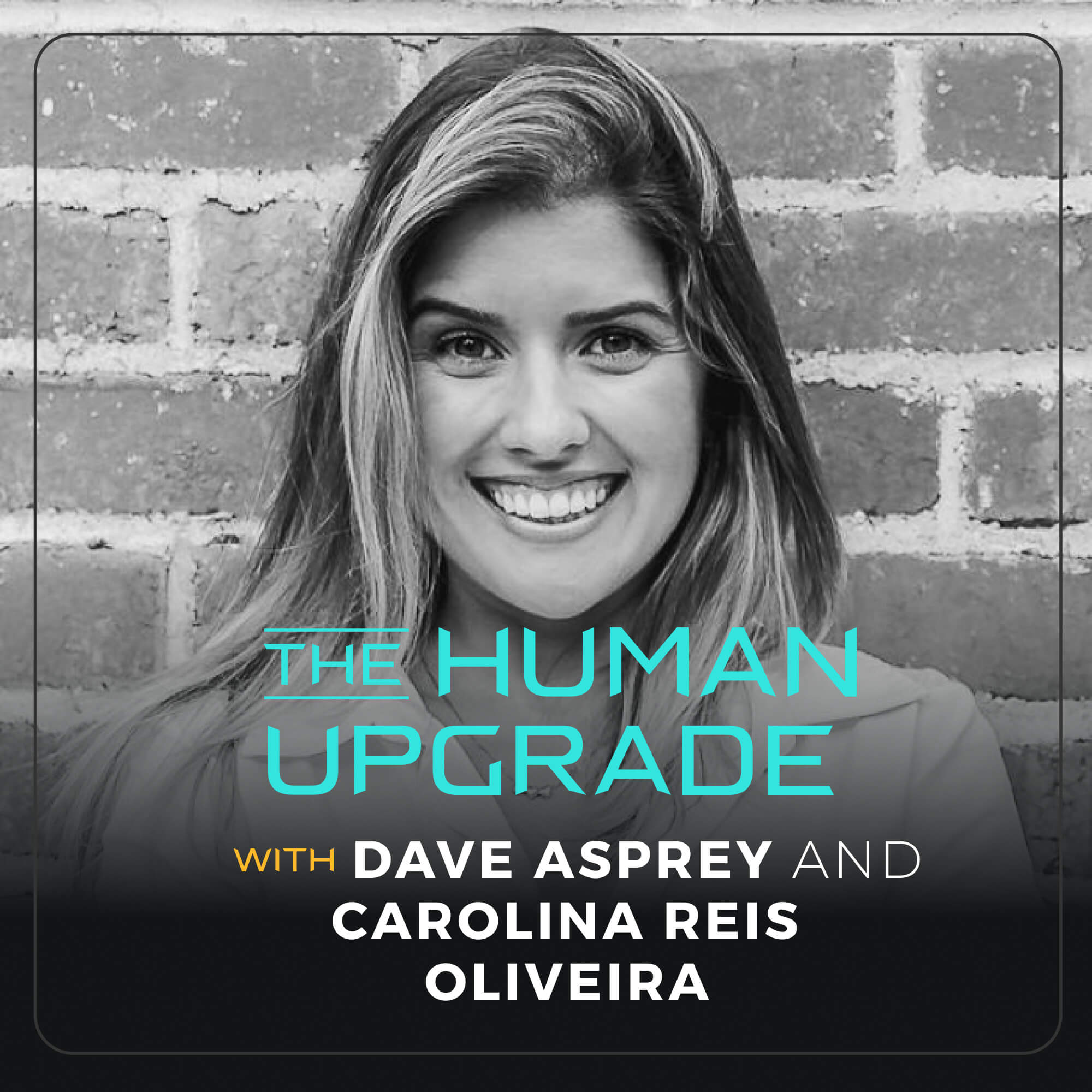In this Episode of The Human Upgrade™...
Today, Upgrade Collective, we dive into a topic that most of us overlook, yet which is crucial for our overall health: our skin. Over the past decade, I’ve come to view our skin as more than just a protective layer; it’s a major organ in our body, just like our liver or heart. Its health isn’t merely about appearances – it profoundly impacts our biology and overall well-being.
So today, we have the pleasure of welcoming Carolina Reyes Oliveira, the founder of OneSkin, a skin health company, back to the show to share exciting insights from new research into specific peptides that can transform not just the appearance but also the functionality of your skin.
Now, here’s the intriguing part – the state of your skin is intricately linked to the health of the rest of your body. If your skin is inflamed or unhealthy, it’s a sign of underlying issues within your system. On the flip side, improving your skin’s health can reduce systemic inflammation and positively affect your organs. This revelation has led me to explore a groundbreaking peptide called OS-01, which was discovered using cutting-edge AI and novel compound-searching techniques.
Carolina shares how the peptide OS-01 can reverse your skin’s biological age, the difference in their body, face and eye formulas, the benefits of their mineral sunscreen to combat skin damage and reduce inflammation, and their discovery providing a new way to measure the age of skin.
If you’re thinking about investing in longevity, this is a game-changer. By addressing skin inflammation, you’re not only enhancing your appearance but also reducing systemic inflammation, a double win.
“We spent around five years and tested nearly a thousand peptides until we got to OS-01. We can prove that it reverses the biological age of the skin.” CAROLINA OLIVEIRA
Carolina Reis Oliveira
(00:02:30)
Discovering OS-01 & How the Peptide Tackles Skin Aging
- Upgrade Spotlight: How a Peptide Gets Under Your Skin to Combat Aging #944
- Getting rid of zombie cells in your skin to reverse signs of aging
- OneSkin reference lab
- How much can you reduce the pace of aging with OneSkin
(00:16:45)
Inside the Different OneSkin Formulas for Face & Eyes
- What their studies found about the differences in skin aging for the face and eyes
- How to apply face and eye cream
(00:21:46)
Boost the Effects of OS-01 Face with the OneSkin Cleanser
- How often you really need to wash your face
(00:24:26)
How & Where to Use the Body Lotion for Optimal Results
- Benefits of reducing sun damage and systemic inflammation
(00:28:02)
Exploring Potential OS-01 Systemic Effects
- How recovering the health of the skin helps your body perform better
- Future development of this peptide beyond the skin
(00:34:46)
Finding the Right Dose with the OneSkin Formula
(00:38:28)
Benefits & Use Recommendations for Mineral Based Sunscreen
- Dangers of non-mineral sunscreen
- Recommendations for skin exposure
- Using sunscreen inside to block the effect of indoor LED blue lights
(00:42:27)
How OneSkin Activates Collagen & Hyaluronic Acid Production
- Go to oneskin.co (use code upgrade15 to save 15%)
(00:44:43)
The MolClock: Discovering a New Way To Measure Skin Aging
- MolClock study
- How diet impacts the effectiveness of OneSkin
Enjoy the show!
LISTEN:
“Follow” or “subscribe” to The Human Upgrade™ with Dave Asprey on your favorite podcast platform.
REVIEW:
Go to Apple Podcasts at daveasprey.com/apple and leave a (hopefully) 5-star rating and a creative review.
FEEDBACK:
Got a comment, idea or question for the podcast? Submit via this form!
SOCIAL:
Follow @thehumanupgradepodcast on Instagram and Facebook.
JOIN:
Learn directly from Dave Asprey alongside others in a membership group: ourupgradecollective.com.
Subscribe To The Human Upgrade
Similar Episodes

BOOKS
4X NEW YORK TIMES
BEST-SELLING SCIENCE AUTHOR
Smarter
Not Harder
Smarter Not Harder: The Biohacker’s Guide to Getting the Body and Mind You Want is about helping you to become the best version of yourself by embracing laziness while increasing your energy and optimizing your biology.








